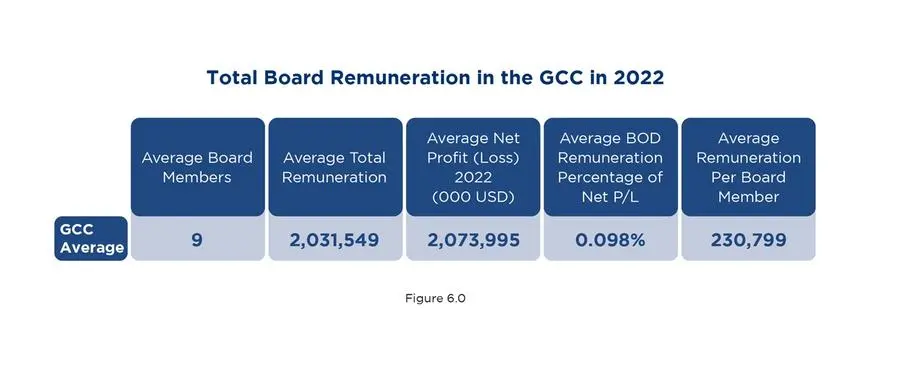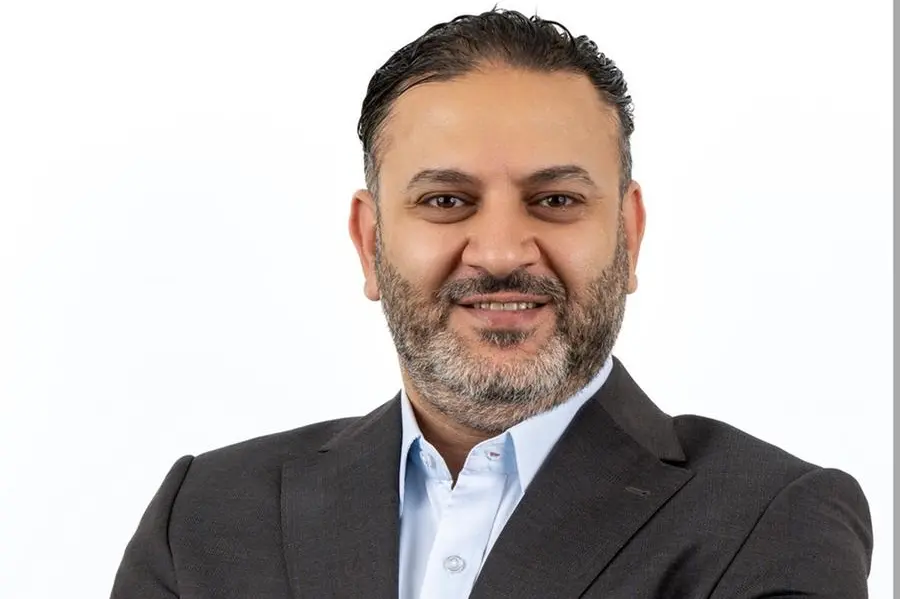PHOTO
Riyadh: Today, PROCAPITA, a leading HR consultancy firm in the region, has officially released its second annual report for the Gulf Cooperation Council countries (GCC) for the year 2023/2024. The report conducts a thorough analysis of the labor market in the region, shedding light on the latest developments and trends in the field of human resources. It covers essential aspects, including economic highlights, recruitment & manpower planning, technology, talent management, compensation and benefits, and board remunerations.


To provide valuable insights, PROCAPITA executed a meticulously designed survey, involving over 1,200 organizations from various sectors in the GCC. Their active participation significantly contributed to enriching the depth and accuracy of the findings presented in the report.
Commenting on the report, Mr. Mohammed Abu Al-Rob, CEO of PROCAPITA and founder of ZENITHR, stressed the importance of this annual report, which has become an invaluable resource for companies navigating the evolving landscape of the labor market in the GCC countries, as it provides a comprehensive understanding of the economic developments and the resulting transformations concerning human resources and employment patterns in the GCC countries. It also provides a comprehensive analysis of the impact of artificial intelligence technologies on the operational processes in the organizations, as well as the compensation provided to members of the boards of directors of companies that offer their shares for public trading in the GCC countries.


Abu Al-Rob also highlighted the effective role of PROCAPITA's strategic partners, ZENITHR for HR Intelligence Solutions and Thomas International, which specializes in conducting behavioral and professional assessments of employees. Their expertise has expanded and deepened the understanding of various precise aspects related to talent dynamics in organizations and industries across the region. Furthermore, this collaboration embodies a steadfast commitment to providing the best value to all partners. He noted that the increase in the number of participants reflects a deep confidence in the team's efforts to understand the dynamic landscape of human resources in the Gulf Cooperation Council region.
Key Findings of the Report:
Recruitment & Manpower Planning:
Employment Growth Rate:
Employee growth rate remained positive in the GCC, with 66.7% of the participating organizations citing increases in 2023. The highest growth rate was recorded in KSA, which could be attributed to various labor reforms, including private sector investment and entrepreneurship initiatives, boosting the Saudi talent market forward. On the other hand, organizations in Qatar cited a low employee growth rate in 2023 potentially due to the completion of the 2022 FIFA World Cup, which reduced the demand for talent.
70.1% of participating organizations in the GCC expect the employee growth rate to increase in 2024. Organizations in KSA have the highest expectation of growth potentially due to investment in various mega projects to boost tourism and the hiring for mega-projects such as NEOM. The outlook for the GCC is promising, as organizations anticipate favorable advancements that will lead to economic growth and progress.


Causes of Employees Quitting:
In the GCC, 64.6% of the organizations identified the prospect of new job opportunities as the main reason to quit their positions. Participating organizations in UAE, are the highest to cite such reason, which could be related to the “Green Visa” initiative.
Moreover, compensation and benefits stand as the second reason at 43% for talent quitting their jobs, compared to last year when compensation was the main reason at 71.5% according to PROCAPITA's 2022 annual report*. This shift indicates a change in the talent hiring trends, suggesting new attractive career opportunities for skilled professionals.


Recruitment Challenges:
43.3% of participating organizations perceive competitive compensation offered by the neighboring markets to be a challenge and this leads to ‘talent drain. Moreover, 39% find the lack of skilled professionals to be another challenge. Bahrain faces a challenge resulting from the attractive compensation and benefits offered by neighboring countries, which hinders the recruitment process. Kuwait suffers from the challenges of laws to attract talent.
New Hires Success Rate
In the GCC, more than 75% of employees who completed their probation period were successfully hired, as reported by 56% of participants with the highest being in the UAE, reflecting a high success rate in the hiring process. However, Bahrain had the lowest hiring rate as reported by the participating organizations which signifies a need to work on talent acquisition and retainment.


Turnover Rate:
KSA recorded the highest turnover cited at 14.1%, which might be attributed to various initiatives and mega-projects fueling economic growth and creating a vibrant market, such a dynamic environment encourages talents to move and seize better opportunities arising from the current transformation.
Technology:
Investment in AI
Only 23% of organizations in the GCC are investing in Artificial Intelligence. Most of those investing or planning to invest agree that the implementation will positively impact the growth of the business and create value for both shareholders and clients. 52% still do not invest in Artificial Intelligence, opting for the traditional way of operating businesses.
Organizations in the UAE and KSA are reported to be the highest in investing or planning to invest in AI in 2024.


Impact of AI:
According to the report, 60.8% of participating organizations that invested in AI in the GCC have anticipated benefits from implementing AI in 1-3 years. Furthermore, 31.3% report that they have already benefited from AI applications in their operations. UAE and KSA are already starting to notice the effects of AI as reported by participants.
According to the participating organizations, the areas of Human Resources that are most impacted by AI, are performance management and employee training and development, at 58.9% and 48.7%, respectively.


Challenges of AI Adoption
52.5% of the participating organizations that started the adoption of AI are facing challenges related to the availability of skilled professionals. Additionally, 46.2% of organizations reported that developing complex, advanced technological infrastructures is a significant challenge.
41.1% of organizations in the GCC consider the lack of financial resources an additional challenge, which includes the investment needed to acquire the software and licenses, ongoing operational costs, and hiring skilled professionals.


Talent Management
Promotion Rate:
According to the participating organizations, the GCC achieved a promotion rate of 57%, with KSA at the forefront in awarding the most promotions, closely followed by Qatar, while Oman provided the least promotions.
Compensation & Benefits
Increments in 2023
77.6% of participating companies in the GCC countries have granted increments to their employees during 2023, with the most common “performance-related increase” at 46.7%, followed by “fixed rate increase” at 32.1%.


Average Salary Increment in 2023
The average salary increment in the GCC countries in 2023 recorded 6.7% compared to 2022, which recorded 5.2% on average. This increase is due to several factors, including the strong performance of the labor market, which reached an unprecedented peak in the past decade, especially In KSA and UAE.
Increments & Bonuses for 2023
64% of the participants provided annual bonuses to their employees for 2023, reflecting an increase from 2022’s 62.7%.
UAE is the highest country providing bonuses to attract and retain employees, followed by Saudia Arabia.
Participating organizations in Bahrain offer the lowest bonuses.
Projected Increments & Bonuses for 2024
83.3% of participating organizations in the GCC are planning to provide increments or bonuses in 2024.
47.6% of the participants will provide both a salary increment and a bonus in 2024, while 16.7% will not provide to their employees.
UAE (followed by Kuwait) leads as an example, as participants will provide at least one type of monetary benefit, which is a definite way to boost employee satisfaction and retention levels.


BOD Remuneration
In the GCC for the year 2022, the average number of board members stood at 9, with their total compensation averaging $2,031,549. On average, listed companies distributed 0.98% of their profits as BOD compensation, resulting in an average cost per member of $230,799. Oman has the highest remuneration as a percentage of total profits at 0.850%. However, the UAE has the highest board remuneration at $391,810.
For further details about the report insights, please visit this link: https://pro-capita.com/reports/procapita-annual-report-2023-2024-gcc-hr-trends-and-practices/
About PROCAPITA:
PROCAPITA is a management consulting platform offering a selection of services to guide companies to transform their business into a successful investment including services like HR Advisory, recruitment advisory, and many more.
For More Information:
Abdullah Inayat
W7Worldwide Marketing Communications Consultancy Agency
Media Relations Director
a.inayat@w7worldwide.com




















